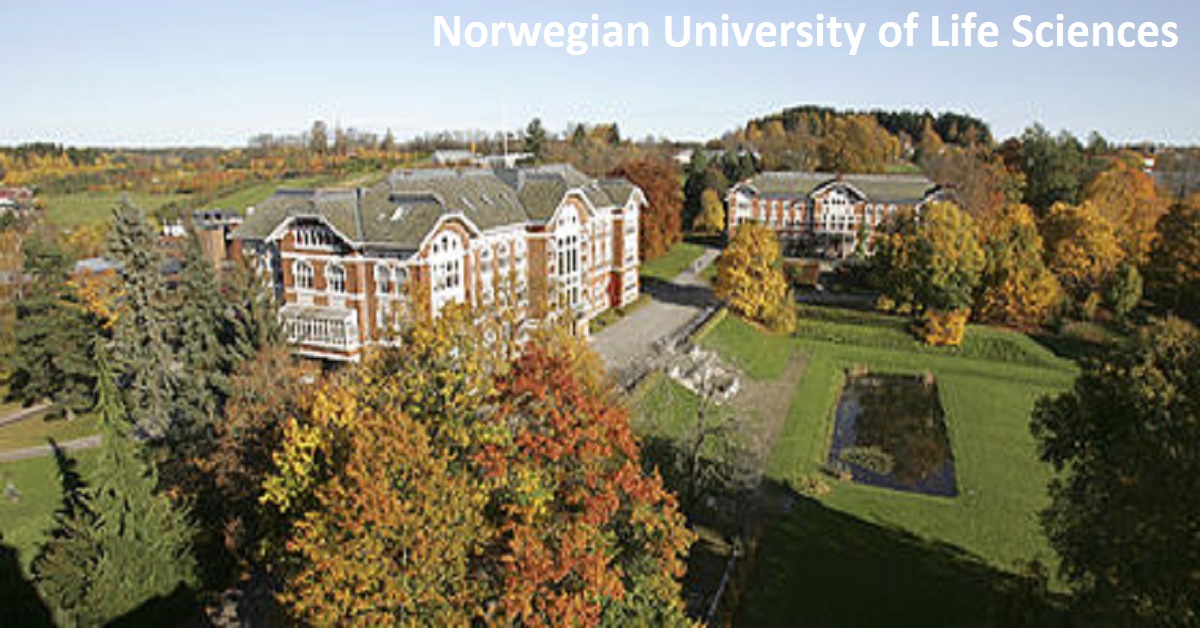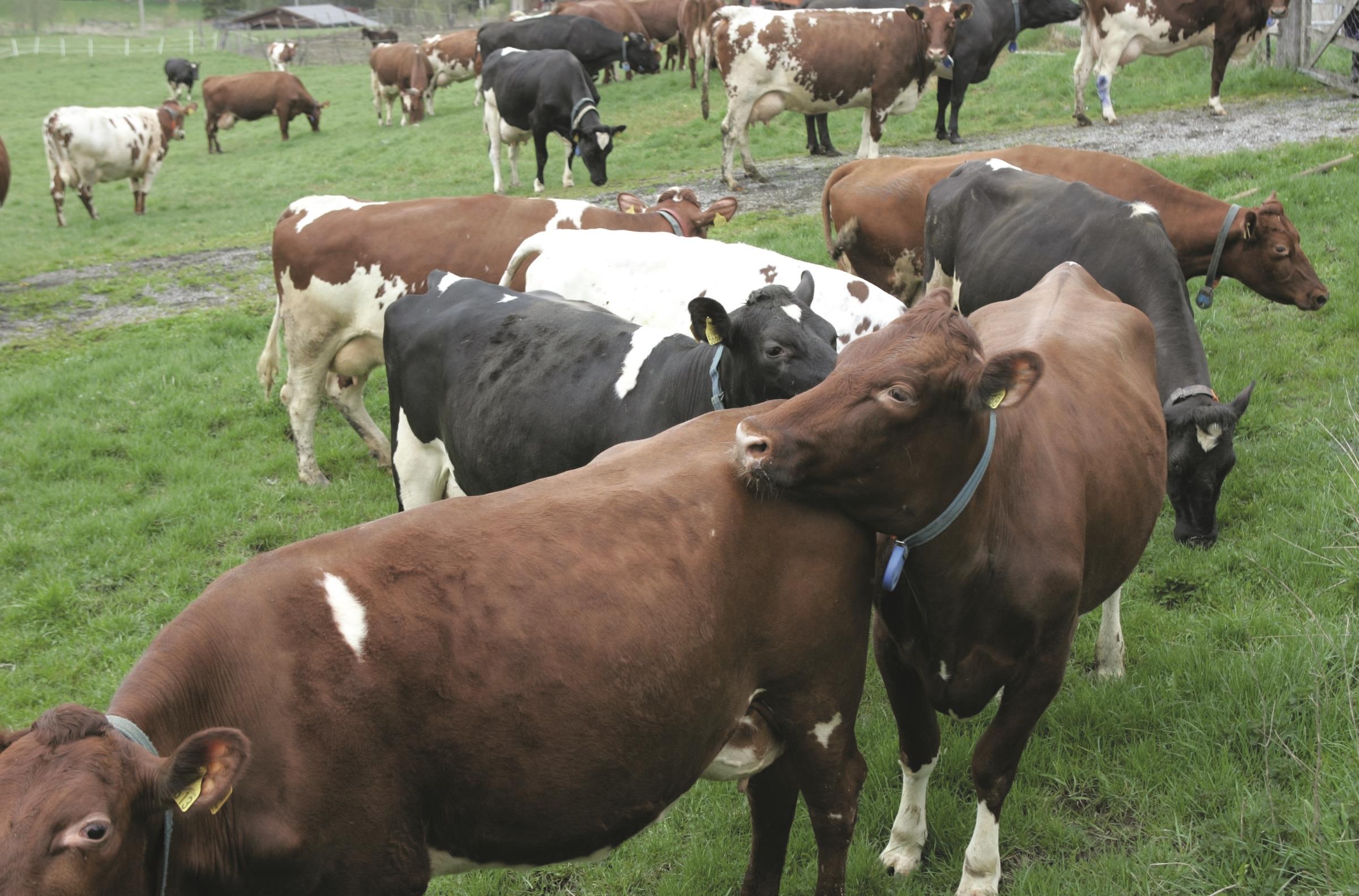
The Department of Production Animal Clinical Sciences, Faculty of Veterinary Medicine at the Norwegian University of Life Sciences (NMBU) has a vacant PhD position related to the use of transmission models and machine learning to improve udder health in Norwegian cows.
The fellowship runs for three years without teaching duties, or four years with teaching, supervision or similar duties constituting 25% of the overall workload. A four-year fellowship requires that the candidate has the necessary qualifications. The starting date for the position will ideally be January 1, 2022, but some flexibility is possible for the right candidate.
The candidate will work on the project TraWel: Applying transmission model techniques and biosensor data to improve animal health and welfare in Norwegian dairy herds. The project is financed by the Research Council of Norway. As a member of the TraWel project group you will be working closely with other researchers in an interdisciplinary team of veterinary epidemiologists and mathematicians.
Mastitis in milking cows is highly prevalent worldwide, with adverse effects on animal welfare, milk production and quality, and the economy of dairy farms. The main purpose of the TraWel project is to develop and improve disease transmission models to forecast the herd incidence of subclinical mastitis.
Main tasks
- Processing of data from health records and automatic milking systems to enhance their use in decision making and management of mastitis.
- Develop algorithms to predict mastitis risk in individual cows using machine learning techniques.
- Develop a disease transmission model for mastitis in cattle herds.
- Validation of tools and models.
- Document research by publishing papers in peer-reviewed journals and present results at scientific conferences.
The successful candidate is expected to enter a plan for the progress of the work towards a PhD degree during the first months of the appointment, with a view to completing a doctorate within the PhD scholarship period.

Competence
In order to be appointed, the candidate must meet the requirements for admission to one of the PhD programs at NMBU. A master’s degree of at least 120 credits (ECTS) is required, which is based on a bachelor’s degree of at least 180 credits (ECTS), or cand.med.vet. (DVM) degree, or integrated master’s degree of at least 300 credits (ECTS). The applicant must have a documented strong academic background from previous studies, and be able to document good English skills, both written and oral. For more detailed information on admission criteria, see the PhD Regulations and the “supplementary provisions for the PhD programmes”.
The applicant should document expertise and interest in the research subject. The position will be suitable for a candidate motivated by working with real world problems through an interdisciplinary approach. A strong quantitative background with a good general mathematical understanding is required, and programming skills are considered an asset. The candidate should also have a keen interest in understanding biological systems.
Required Academic qualifications
- Veterinary education (DVM)/cand.med.vet or master’s degree (MSc) within relevant field e.g. ecology, epidemiology, applied mathematics, data science.
- Strong quantitative skills.
- Strong written and oral communication skills in English.
The following experiences and skills will be emphasized:
- Experience with machine learning algorithms.
- Experience with high-dimensional/big data.
- Experience within formal verification and model-checking.
- Knowledge of biological systems related to medicine or veterinary medicine.
- Experience with disease transmission models.
- Good skills in a programming/scripting language (e.g. MATLAB, R, Python)
- Good communication skills in Norwegian or another Scandinavian language may be an asset.
Personal skills:
you need to
- be curious, result-oriented and highly motivated
- possess strong communication and cooperation skills
- have a solid interest in biology
Remuneration and further information
The position is placed in government pay scale position code 1017 PhD Fellow, pay scale 20 (salary step. 54–62) (NOK 491.200 – 563.900). PhD Fellows are normally placed in pay grade 54 (NOK 491.200) on the Norwegian Government salary scale upon employment and follow ordinary meriting regulations.
Employment is conducted according to national guidelines for University and Technical College PhD scholars.
For further information, please contact Professor Olav Reksen, E-mail: olav.reksen@nmbu.no phone +47 67232126
Information for PhD applicants and general Information to applicants

Application
The applicant is made aware that an application for a PhD position at NMBU is at the same time an application for admission to a PhD program at the institution. The documentation that is necessary to ensure that the admission requirements are met must be uploaded as an attachment. To apply online for this vacancy, please click on the ‘Apply for this job’ button above. This will route you to the University’s Web Recruitment System, where you will need to register an account (if you have not already) and log in before completing the online application form.
Application deadline: 17.11.2021
In the application, the candidate must confirm that information and documentation (in the form of attachments) submitted via the job application can also be used by NMBU in a possible admission process.
Applicants invited for an interview are expected to present original diplomas and certificates.
The following documents must be attached to the application:
- Motivation letter (maximum 1 page)
- Complete CV
- Certified copies of academic diplomas and certificates. (i.e., Diploma, transcript. Diploma supplement for both bachelor and master). Diplomas, transcripts and diploma supplements that are not in Norwegian or English must be uploaded in the original language. An English translation of these documents must also be attached.
- Applicants from universities outside Norway are kindly requested to send a diploma supplement, or a similar document, which describes in detail the study program and grading system.
- Documentation of proficiency in written and oral English
- Names and contact details for two references.
- Documentation of additional professional activities (for example a list of scientific publications).
About the Faculty of Veterinary Medicine
The Faculty of Veterinary Medicine at NMBU is the country’s only veterinary professional education and provide expertise in veterinary medicine and veterinary public health. The Faculty educates veterinarians, animal nurses and doctoral students in Veterinary Science and researches in veterinary medicine and related biomedical fields. We have 500 students and 430 employees.
The faculty consists of the departments of Preclinical Sciences and Pathology, Paraclinical Sciences, Production Animal Clinical Sciences and Companion Animal Clinical Medicine. We also run the Animal Hospital, which is closely linked to our research and education, and receives patients from all over the country.NMBU
The Norwegian University of Life Sciences (NMBU)
NMBU has a particular responsibility for research and education that secures the basis for the life of future generations. Sustainability is rooted in everything we do and we deliver knowledge for life. NMBU has 1,800 employees of which about 250 phd scholarships and 6,000 students. The university is divided into seven faculties.
NMBU believes that a good working environment is characterised by diversity.
We encourage qualified candidates to apply regardless of gender, functional ability, cultural background or whether you have been outside the labour market for a period. If necessary, workplace adaptations will be made for persons with disabilities. More information about NMBU is available at www.nmbu.no.
Apply for this job
![Sydney University [AU]: Research and Academic Opportunities](https://scholaridea.com/wp-content/uploads/2020/12/University-of-Sydney-768x403.jpg)
![Postdoctoral and Research Opportunities at McGill University [CA]](https://scholaridea.com/wp-content/uploads/2020/06/mcgill-university-30-may-2019-768x402.jpg)
